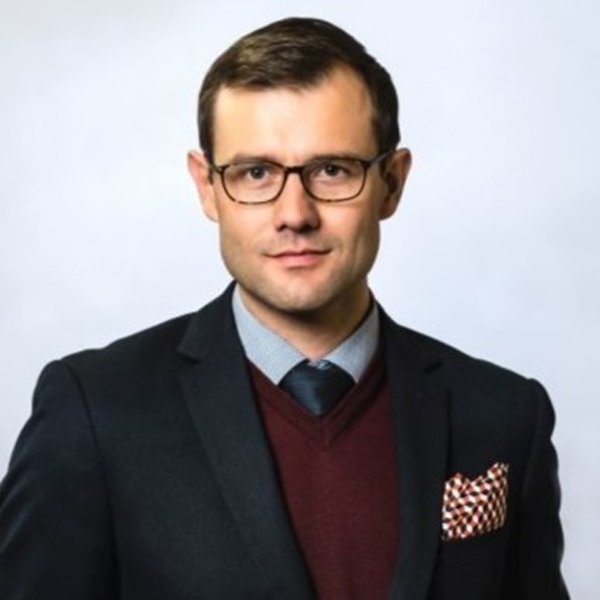Łukasz Świątczak is Lecturer at HHL Leipzig Graduate School of Management. He holds a PhD in Economics and Game Theory at HHL Leipzig and a Masters degrees from which one is in Operations Research and Information Systems from Poznan University of Economics and Business.
The main courses Łukasz offers focus on topics like Managerial Economics, Decisions and Games, Quantitative Analysis for Managers and Quantitative Research Methods.
Łukasz is involved in the MaastrichtMBA programme as instructor at the Online MBA course on Managerial Economics.
For about 10 years, I have been teaching Managerial Economcis and Quantitative Research Methods in the former EuroMBA programme that has been successfully transformed into the online track of the MaastrichtMBA programme. During that time, I have visited Maastricht several times, always in winter. I found the historic city at Meuse and the capitol of Limburg picturesque and charming. I am looking forward to experiencing the summer version of the city.
One of the main motives behind becoming an (academic) teacher was the urge to acquire and share knowledge with others. It accompanied me from my early days and was getting stronger and clearer during the high school time. I used to offer help and private lessons to other students. I continued doing that at the university, where in parallel to my economics and management studies, I completed pedagogical studies and gain my first serious teaching experience. The choice of an academic level teaching was a natural consequence of my educational development. The focus on executive education was driven by the value added of applying theoretical knowledge to solving real-life problems and on open curiosity about learning from the students as much as teaching them.
I am an instructor of Managerial Economics, one of the online courses during which I intend to demonstrate the value and applicability of economic principles for managers in various managerial roles.
Managerial economics deals with the study of how to direct scarce resources in the way that most efficiently achieves a managerial goal. The resources can be very different – money, time, labor – as are the goals that managers aim to achieve — those may differ depending on the organisation type, function, management level. Yet, the fundamental principles of economics can be helpful for all the cases.
In the course, we will have a closer look at various managerial scenarios and problems and will use tools and principles of economics to solve them efficiently. Next to problem solving, we will focus on decision making, both individual decisions (e.g. how to produce at a minimal cost) and interactive decisions (e.g. how to price a product in the presence of competition) and apply the learnings to student-selected problems.
This is a good and difficult question that does not have a simple or a readily available answer. On the research side some important work has been done to better understand effects of the unprecedented pandemic on economies, firms and households. More importantly, still much more research is necessary and planned for the coming years.
I think that the pandemic showed weaknesses of policies and economic structures that simply were not accounting for a scenario with such severe and global village effects. On the other hand, the pandemic provides next to threats to many firms and sectors also some opportunities that can be seized. I find it critical do learn from the current situation to avoid or at least mitigate similar situations in the future. Economic principles and methods can inform this process.
The coronavirus pandemic is an unprecedented situation that left scratches on many facets of the global economy. Both the supply and demand sides of most markets were severely affected causing many firms go bankrupt. Global supply chains were disrupted revealing how inflexible and dependent they became. Social distancing changed the way people work and interact with each other. Although working from home office was perceived as potentially reducing productivity, the pandemic showed the opposite.
Consequences of the pandemic are still a big challenge to many firms, but also an opportunity to rethink and redesign organizations, working modes and to make the supply chains more flexible and robust to cope with unexpected shocks. Luckily, the existing body of knowledge (not only economics), if applied wisely, can help make firms and economies stronger in the future than ever.
I am proud of working in a vibrant international environment that motivates my continues professional development and personal growth.
I am father of two kids (aged 2 years and 1 month) that I am very proud of. I enjoy watching them grow and I am continuously impressed by the curiosity about the surrounding world and the sponge-like capability of learning of children.
On the hobby side, I like everything that has to do with bicycles and cycling. In my spare time, I either plan a bicycle tour or actually carry out the tour plan (I completed several tours in Europe and Middle East).
